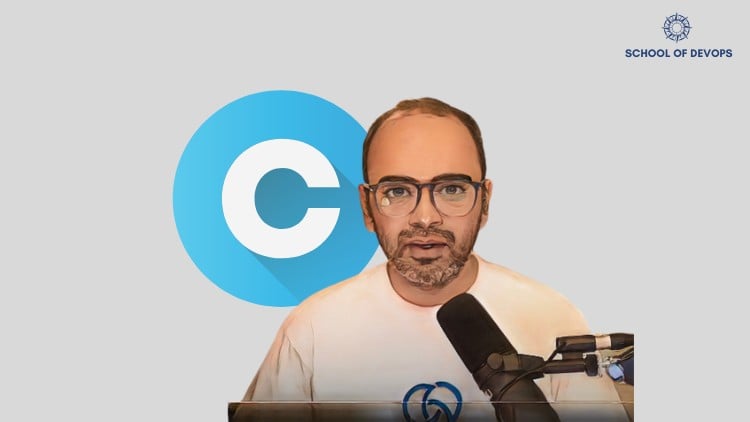
Learn to write Infrastructure as a Code and manage it at scale with Chef
⏱️ Length: 6.4 total hours
⭐ 4.16/5 rating
👥 7,018 students
🔄 January 2025 update
Add-On Information:
Note➛ Make sure your 𝐔𝐝𝐞𝐦𝐲 cart has only this course you're going to enroll it now, Remove all other courses from the 𝐔𝐝𝐞𝐦𝐲 cart before Enrolling!
- Course Overview
- This “Mastering Chef the DevOps Way” course by the School of DevOps is your essential guide to modern infrastructure automation and management using Chef.
- Transition from manual configurations to declaratively defining and maintaining consistent, reliable, and scalable infrastructure across all environments.
- Embrace core DevOps principles: automation, collaboration, and continuous delivery, learning how Chef streamlines deployments and minimizes errors.
- Discover comprehensive automation for server configurations, package installations, service orchestration, and application deployments, ensuring uniformity.
- Through a practical, hands-on approach, you’ll gain the skills to implement and manage infrastructure at scale, becoming a valuable asset in modern IT.
- Updated in January 2025, the content reflects the latest Chef ecosystem best practices and features, ensuring highly relevant and applicable skills.
- Join thousands of satisfied students to revolutionize your infrastructure operations and drive greater efficiency and agility within your organization.
- Learn to treat infrastructure as version-controlled, testable, and deployable code, fostering strategic thinking about its entire lifecycle.
- Requirements / Prerequisites
- A foundational understanding of command-line interfaces (CLI) on Linux or Unix-like operating systems is beneficial.
- Basic familiarity with server administration tasks, such as managing services and file permissions, will provide useful context.
- Conceptual knowledge of version control systems, particularly Git, is advantageous for IaC practices.
- Access to a computer with a stable internet connection and sufficient resources for development tools (and a virtual machine for local labs) is recommended.
- No prior Chef experience is required; this course builds foundational principles from the ground up, making it accessible to beginners.
- Basic programming logic or scripting understanding will aid in grasping Chef’s Domain-Specific Language (DSL) more quickly.
- An eagerness to learn and experiment with automation technologies is crucial for maximizing success in this practical program.
- Comfort using a text editor or an Integrated Development Environment (IDE) for code writing and modification is expected.
- Skills Covered / Tools Used
- Skills Covered:
- Designing and implementing maintainable, extensible, and secure IaC architectures through strategic configuration management.
- Mastering declarative infrastructure definitions for consistent and desired system states without manual intervention.
- Automating complex system configurations across server fleets, significantly reducing operational time.
- Implementing continuous configuration practices for agile updates and consistent application of changes.
- Applying robust testing methodologies to infrastructure code, enhancing reliability and mitigating deployment risks.
- Integrating security best practices into IaC workflows, including sensitive data handling and access controls.
- Collaborating effectively on infrastructure code projects using version control, facilitating team development and rigorous review.
- Troubleshooting Chef client runs and server communications, developing critical diagnostic skills for infrastructure health.
- Tools Used:
- Chef Workstation: The integrated development environment for Chef, including `chef-repo` and `knife`.
- Version Control Systems (e.g., Git): Essential for managing and collaborating on Chef codebases.
- Operating System Shells (e.g., Bash, PowerShell): For interacting with local machines, remote nodes, and executing Chef commands.
- Text Editors / IDEs: Crucial for authoring and managing Chef recipes, cookbooks, and configuration files.
- SSH Clients: For secure remote access to nodes during bootstrapping and troubleshooting.
- Virtualization Software (e.g., VirtualBox): Often utilized for creating isolated local testing environments.
- Command-line Utilities: General-purpose utilities for file manipulation, process management, and network diagnostics.
- Skills Covered:
- Benefits / Outcomes
- Become a highly competent DevOps practitioner, proficient in designing, implementing, and maintaining automated infrastructure with Chef.
- Dramatically reduce manual effort and human error in infrastructure provisioning, enhancing operational efficiency and reliability.
- Achieve unprecedented consistency across all your servers and environments, ensuring predictable behavior and simplified troubleshooting.
- Accelerate software deployment cycles by seamlessly integrating automated infrastructure provisioning into your CI/CD pipelines.
- Gain confidence in managing complex, multi-environment infrastructure, quickly adapting to evolving business and technical demands.
- Strengthen system reliability and stability through practical application of idempotent and convergent configuration management principles.
- Develop robust skills in securing infrastructure configurations and managing sensitive data effectively within the Chef ecosystem.
- Position yourself for advanced roles in DevOps, SRE, Cloud Engineering, and Infrastructure Architecture with a highly sought-after skill set.
- Build a practical portfolio demonstrating your ability to implement real-world Infrastructure as Code solutions using Chef.
- Establish a strong foundation for exploring further Chef ecosystem tools like Chef InSpec for compliance or Chef Automate for analytics.
- PROS
- Highly Practical: Emphasizes hands-on application of Chef for immediate skill utilization in real-world scenarios.
- Current Content: Updated January 2025, ensuring relevance with the latest Chef features and industry best practices.
- Strong Community Validation: Excellent rating (4.16/5) and high enrollment (7,018 students) signify proven effectiveness and satisfaction.
- Career Advancement: Provides in-demand skills essential for modern DevOps, SRE, and Cloud Engineering roles.
- Comprehensive Yet Concise: Delivers a solid foundational and intermediate understanding of Chef within a practical timeframe.
- Clear Learning Path: Progressively structured content, guiding learners from core concepts to advanced infrastructure management.
- Automation Empowerment: Teaches principles and tools that significantly reduce manual effort and human error, boosting efficiency.
- Scalability Focus: Directly addresses managing infrastructure “at scale,” a critical requirement for enterprise-level operations.
- School of DevOps Expertise: Developed by an institution specializing in DevOps, guaranteeing high-quality, industry-aligned instruction.
- CONS
- Duration Limits Deep Dives: The 6.4-hour length may constrain exhaustive exploration of extremely complex, niche real-world scenarios or extensive advanced troubleshooting.
Learning Tracks: English,IT & Software,Other IT & Software
Found It Free? Share It Fast!